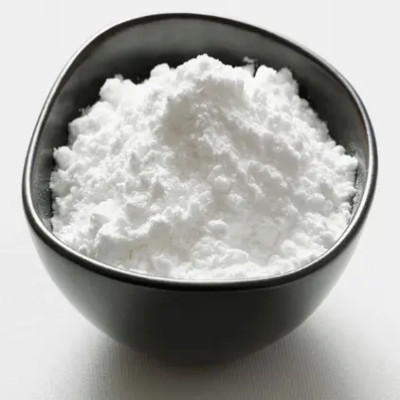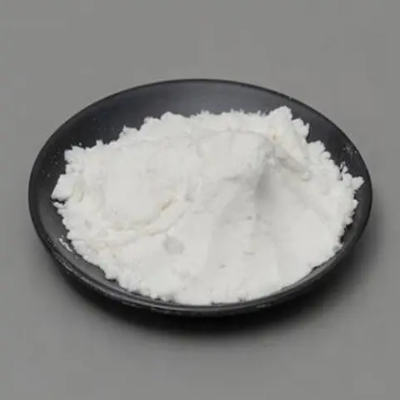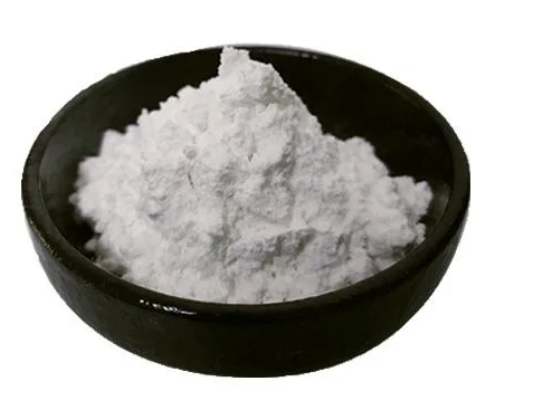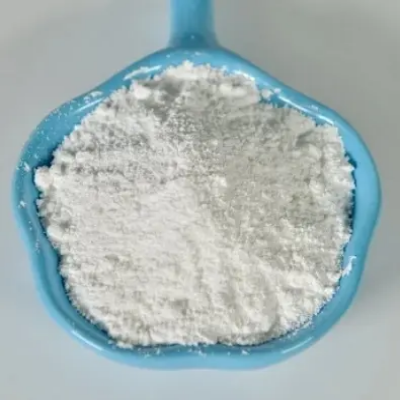(S)-1-(3-Ethoxy-4-Methoxyphenyl)-2-(Methylsulfonyl)ethylaMine N-acetyl-L-leucine salt CAS:608141-43-1
The structural characteristics of (S)-1-(3-ethoxy-4-methoxyphenyl)-2-(methylsulfonyl)ethylamine N-acetyl-L-leucine salt are significant: Amine Group: Central to its structure is an amine motif, crucial for biological interactions and potential drug-receptor binding. Aryl Ketone Core: The core structure comprises a phenyl ring substituted with both ethoxy and methoxy groups, conferring electronic properties conducive to various chemical interactions. Methylsulfonyl Group: Attached to the ethylamine backbone, the methylsulfonyl moiety enhances the compound's reactivity and influences its potential biological activities. Ether and Ester Functionalities: Presence of ethoxy and methoxy substituents introduces flexibility and potential for hydrogen bonding, crucial for biological interactions. Acetyl-L-Leucine Salt: The N-acetyl-L-leucine salt form improves solubility and may alter pharmacokinetic properties, affecting absorption and distribution in biological systems. Chemical Applications (S)-1-(3-Ethoxy-4-methoxyphenyl)-2-(methylsulfonyl)ethylamine N-acetyl-L-leucine salt demonstrates broad chemical utility: Medicinal Chemistry: Used as a building block for designing analogs with potential pharmaceutical applications, targeting specific biological pathways. Synthetic Intermediacy: Acts as an intermediate in the synthesis of more complex molecules, including pharmaceuticals and agrochemicals. Functional Group Diversity: Ether and methoxy groups contribute to solubility and pharmacokinetic properties, influencing drug delivery and efficacy. Pharmacological Potential Research into its pharmacological properties highlights several potential avenues: Antimicrobial Activity: Structural components suggest potential antimicrobial properties, warranting investigation against various pathogens. Anti-inflammatory Effects: Ether and methoxy groups may contribute to anti-inflammatory properties, relevant in treating inflammatory conditions. Enzyme Inhibition: Methylsulfonyl group's presence suggests potential for enzyme inhibition, impacting metabolic pathways and disease states. Future Directions Future research directions for (S)-1-(3-ethoxy-4-methoxyphenyl)-2-(methylsulfonyl)ethylamine N-acetyl-L-leucine salt include: Structure-Activity Relationships: Further exploring how structural modifications affect its biological activity and optimizing derivatives for enhanced efficacy. Drug Design: Utilizing its multifunctional groups to develop novel therapeutics targeting specific diseases or biological mechanisms. Toxicological Studies: Assessing its safety profile and potential side effects to ensure suitability for clinical applications. Conclusion In conclusion, (S)-1-(3-ethoxy-4-methoxyphenyl)-2-(methylsulfonyl)ethylamine N-acetyl-L-leucine salt is a versatile compound pivotal in organic synthesis and medicinal chemistry. Its unique structural attributes and functional diversity underscore its potential in drug discovery and development, offering opportunities for creating new pharmaceuticals with tailored pharmacological properties. Ongoing research into its synthesis methodologies and pharmacological effects promises to unveil further applications in healthcare and related fields, solidifying its significance in modern chemical research and therapeutic innovation.



| Composition | C20H34N2O7S |
| Assay | 99% |
| Appearance | white powder |
| CAS No. | 608141-43-1 |
| Packing | Small and bulk |
| Shelf Life | 2 years |
| Storage | Store in cool and dry area |
| Certification | ISO. |









